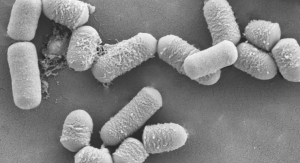01.06.22
Seven-year-old children performed better on challenging tasks meant to evaluate their sustained attention if their mothers consumed double the recommended daily amount of choline during pregnancy, a new study conducted by Cornell University researchers concluded. These findings could mean that the current recommendations for choline for expected mothers do not fully meet the needs of the fetal brain, the authors of the study said.
“Our findings suggest population-wide benefits of adding choline to a standard prenatal vitamin regimen,” Barbara Strupp, professor in the division of nutritional sciences and department of psychology at Cornell and co-senior author of the study, said. According to the authors, 90% of expectant mothers consume less than the recommended amount of choline, a nutrient which is found in egg yolks, lean red meat, fish, poultry, legumes, nuts, and cruciferous vegetables.
“Current recommendations for pregnant women were set in 1998 and are based on the amount of choline needed to prevent liver dysfunction in men, not on the more relevant outcome of offspring neurocognitive development,” Co-senior author Richard Canfield, senior research associate at Cornell’s department of nutritional science, said.
While several decades of research using rodent models has been the primary model by which dietary recommendations were made for prenatal choline supplementation, few studies have examined choline’s effect on pregnant mothers for the purpose of establishing intake recommendations.
The controlled feeding study involved randomizing 20 pregnant women to consume prepared diets with a specified amount of choline. One group consumed 480 mg of choline, approximately the recommended daily allowance, or 930 mg daily during the third trimester of their pregnancies.
The children of women who consumed 480 mg of choline daily showed a decline in accuracy from the beginning to the end of a sustained attention task, while children of the 930 mg group maintained a high level of accuracy during the task. These findings were parallel to similar preliminary animal studies on dose-respondent sustained attention outcomes.
“By demonstrating that maternal choline supplementation in humans produces offspring attentional benefits that are similar to those seen in animals, our findings suggest that the full range of cognitive and neuroprotective benefits demonstrated in rodents may also be seen in humans,” Strupp said. The authors noted that this was the first study to follow children to school age.
“By showing that the beneficial effects of prenatal supplementation endure into childhood, these findings illustrate a role for prenatal choline in programming the course of child cognitive development,” Canfield said. “And because the ability to sustain attention in challenging situations is critical to nearly all areas of cognitive performance, the cumulative impact of improving sustained attention is likely to be substantial.”
“Our findings suggest population-wide benefits of adding choline to a standard prenatal vitamin regimen,” Barbara Strupp, professor in the division of nutritional sciences and department of psychology at Cornell and co-senior author of the study, said. According to the authors, 90% of expectant mothers consume less than the recommended amount of choline, a nutrient which is found in egg yolks, lean red meat, fish, poultry, legumes, nuts, and cruciferous vegetables.
“Current recommendations for pregnant women were set in 1998 and are based on the amount of choline needed to prevent liver dysfunction in men, not on the more relevant outcome of offspring neurocognitive development,” Co-senior author Richard Canfield, senior research associate at Cornell’s department of nutritional science, said.
While several decades of research using rodent models has been the primary model by which dietary recommendations were made for prenatal choline supplementation, few studies have examined choline’s effect on pregnant mothers for the purpose of establishing intake recommendations.
The controlled feeding study involved randomizing 20 pregnant women to consume prepared diets with a specified amount of choline. One group consumed 480 mg of choline, approximately the recommended daily allowance, or 930 mg daily during the third trimester of their pregnancies.
The children of women who consumed 480 mg of choline daily showed a decline in accuracy from the beginning to the end of a sustained attention task, while children of the 930 mg group maintained a high level of accuracy during the task. These findings were parallel to similar preliminary animal studies on dose-respondent sustained attention outcomes.
“By demonstrating that maternal choline supplementation in humans produces offspring attentional benefits that are similar to those seen in animals, our findings suggest that the full range of cognitive and neuroprotective benefits demonstrated in rodents may also be seen in humans,” Strupp said. The authors noted that this was the first study to follow children to school age.
“By showing that the beneficial effects of prenatal supplementation endure into childhood, these findings illustrate a role for prenatal choline in programming the course of child cognitive development,” Canfield said. “And because the ability to sustain attention in challenging situations is critical to nearly all areas of cognitive performance, the cumulative impact of improving sustained attention is likely to be substantial.”




























